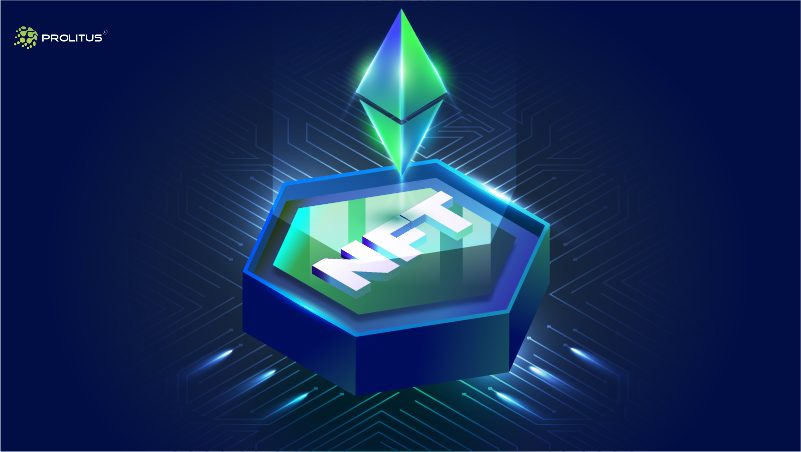
Cryptocurrencies and blockchain technology are creating a new kind of system where everything is decentralized. However, some centralized systems still exist and use blockchain technology to store data. These are “NFTs” or “non-fungible tokens.” NFTs allow for the creation of decentralized platforms and communities that are immune to censorship and manipulation and are more efficient because all transactions are publicly logged.
NFTs are a new type of digital asset that can provide a more secure and decentralized way of exchanging information and assets. It can be used to create decentralized platforms and communities that are powered by user-generated content and contributions. NFTs have the potential to revolutionize the way we store, share, and trade information and assets.
What are NFTs, and why do they matter?
NFTs are a new type of digital asset that has the potential to revolutionize how we use and store information. Unlike traditional assets like stocks or bonds, which are stored in centralized databases, NFTs can be stored and traded on decentralized networks. This allows them to trade easily and comes with various purposes, including payments, contracts, and data storage.
NFTs have the potential to make many aspects of our lives more efficient and secure. For example, they can securely store medical data or transactions between two parties without needing a third party like a bank or trust company. Additionally, they could act as new forms of financial instruments that are not currently available. NFTs could even create new versions of online games or social media platforms.
The blockchain-based approach to NFTs: Decentralized platforms and communities
Blockchain-based approaches to NFTs are becoming more popular as decentralized platforms and communities become more prevalent. These platforms and communities allow for sharing information and assets without needing a trusted third party. As such, blockchain-based NFTs could be a better option than traditional NFTs.
One example of a blockchain-based NFT is Ethereum’s ERC20 tokens. These tokens are stored on a blockchain, so they can’t be tampered with. This makes them secure and reliable investments. Another advantage of using blockchain technology is that it allows for easy trading between people. This makes NFTs an ideal way to transfer ownership of assets between parties.
There are some limitations to using blockchain technology in this way, however. For example, blockchains aren’t always accessible or affordable for everyone.
The importance of NFTs for decentralized platforms: Scalability, interoperability, and security
In today’s world, decentralized platforms are quickly becoming the new norm. The platforms allow users to conduct transactions without needing a third party. In fact, it is a huge advantage, especially in the current global political and economic climates. One of the key ingredients necessary for this kind of platform is scalability—it can handle many transactions without causing performance issues.
One popular solution to this problem is the Distributed Ledger Technology (DLT). It underpins cryptocurrencies like Bitcoin and Ethereum. However, DLT has certain limitations when it comes to scalability. For instance, it has a challenge in increasing the number of transactions per second on a blockchain. This is due to its reliance on the Proof-of-Work consensus mechanism. This means that there needs to be more room for growth regarding mainstream adoption.
An alternative approach to NFTs: Using the Ethereum platform
An alternative approach to NFTs is using the Ethereum platform. This platform uses smart contracts and allows for the creation of decentralized applications (dApp). These applications can store data, manage transactions, and more. The Ethereum platform is popular because it is flexible and secure. It can also create a wide range of applications using its capabilities.
Ethereum is a decentralized platform that runs smart contracts: applications that run exactly as programmed without any possibility of fraud or third-party interference. Furthermore, these apps use blockchain technology with no central authority or intermediary. This makes Ethereum an attractive option for creating and managing NFTs.
Ethereum allows users to create and trade custom tokens called ERC-20 tokens. These tokens are similar to Bitcoin but use a different codebase and have extra features that make them more versatile. For example, ERC-20 tokens can be traded on decentralized exchanges and used to pay for goods and services. Another advantage of using Ethereum for NFTs is that it has a strong community behind it.
Benefits of using NFTs in a decentralization context: Increased security, privacy, and user control
NFTs offer several benefits when used in a decentralization context. Increased security, privacy, and user control are all advantages to consider.
NFTs can provide increased security by requiring multiple signatures to create or transfer an NFT. This increases the likelihood that the NFT is safe from imitation or forgery. Additionally, since NFTs is decentralized, there is no single point of failure that could allow for theft or fraud. NFTs also enhance user privacy. Since each NFT is unique, third parties cannot easily copy or track them. Finally, user control over their assets is enhanced through NFTs. Since you cannot transfer NFT ownership without the consent of all holders, users have more control over their investments than with traditional forms of currency and assets.
Challenges associated with decentralizing platforms with NFTs: Taxability, liquidity, and interoperability
Decentralizing platforms with NFTs poses several challenges that we must address to make them viable and sustainable. Taxability, liquidity, and interoperability are all crucial considerations, and each can be particularly challenging when it comes to decentralizing platforms with NFTs.
Taxation is an essential part of any system where people make tax payments. Decentralized platforms with NFTs must be able to handle taxation in a way that is both fair and efficient. However, it’s worth noting that there is no single answer for taxation on a decentralized platform, as different jurisdictions may have different tax rules. For example, some countries may treat digital assets as capital assets, which could lead to higher taxes being levied.
Liquidity is also an issue that needs to be considered when decentralizing platforms with NFTs.
What are the implications of using NFTs in the decentralization space?
NFTs are a novel form of data that can be used to improve the decentralization space. They allow for digital asset issuance, transfer, and management without relying on a third party. This makes them an ideal solution for applications such as decentralized exchanges and smart contracts.
NFTs could have a significant impact on the decentralization space. By allowing for the issuance and transfer of digital assets without reliance on a third party, they could improve efficiency and scalability across applications. Additionally, their use in decentralized exchanges could lead to increased liquidity and price discovery.
Conclusion
In conclusion, NFTs offer a powerful way to create decentralized platforms and communities, and their use can only increase as the technology matures. Further NFT development will allow for even more innovative applications, and we look forward to seeing what the future holds for this exciting technology.
Personal Note From MEXC Team
Check out our MEXC trading page and find out what we have to offer! You can learn more about crypto industry news. There are also a ton of interesting articles to get you up to speed with the crypto world. Lastly, join our MEXC Creators project and share your opinion about everything crypto! Happy trading!
Join MEXC and Start Trading Today!



